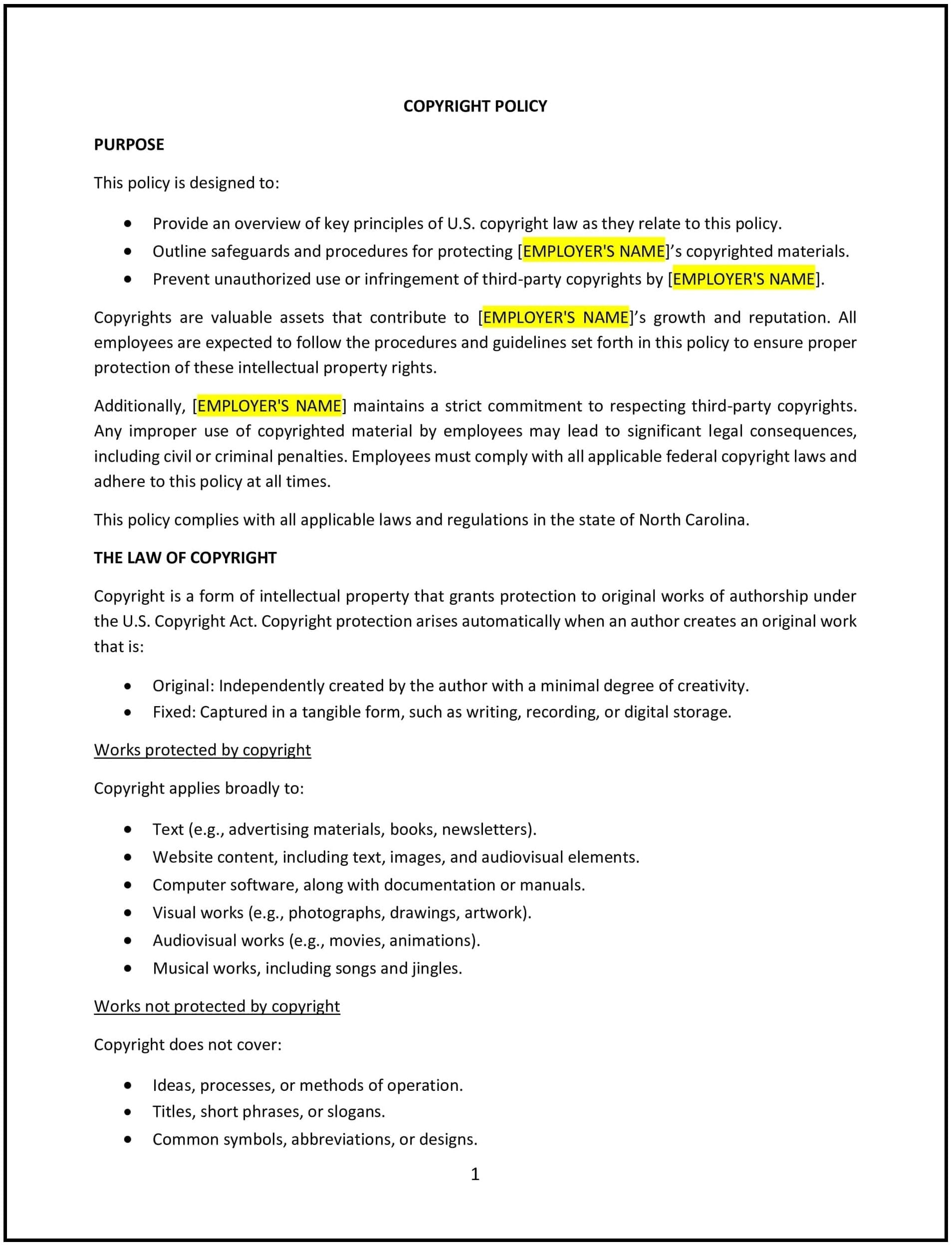Got contracts to review? While you're here for policies, let Cobrief make contract review effortless—start your free review now.

Customize this template for free
Copyright policy (North Carolina)
A copyright policy helps North Carolina businesses protect their intellectual property by setting clear guidelines for the use of copyrighted materials, including company-owned works, third-party content, and employee creations. This policy outlines the company’s rights and responsibilities regarding copyrighted materials, including proper attribution, licensing, and the avoidance of infringement.
By adopting this policy, businesses can prevent copyright violations, ensure that intellectual property is used legally, and protect the company’s brand and creations.
How to use this copyright policy (North Carolina)
- Define copyrighted materials: Clearly define what constitutes copyrighted materials, including works created by the company, employee-generated works, and third-party content the company uses.
- Set usage guidelines: Establish rules for the proper use of copyrighted materials, including how employees should obtain permission to use third-party content and how to provide attribution.
- Address copyright infringement: Specify how the company will address any instances of copyright infringement, both within the organization and in dealings with third parties.
- Establish reporting procedures: Provide a process for employees to report potential copyright violations, either within the company or in external dealings.
- Reflect North Carolina-specific considerations: Ensure that the policy complies with North Carolina’s intellectual property laws, as well as federal copyright law under the U.S. Copyright Act.
Benefits of using this copyright policy (North Carolina)
This policy provides several benefits for North Carolina businesses:
- Protects intellectual property: A clear copyright policy helps protect the company’s creative works, inventions, and brand identity, safeguarding its intellectual property.
- Reduces legal risk: By adhering to copyright laws, businesses can avoid legal disputes, penalties, or damages resulting from copyright infringement.
- Promotes ethical content use: The policy sets expectations for employees to respect copyright laws and avoid using third-party content without proper licensing or attribution.
- Encourages creativity: With clear guidelines in place, employees are empowered to create content without the fear of infringing on others' intellectual property.
- Supports business growth: A strong copyright policy helps businesses maintain ownership of their creations, fostering innovation and long-term growth.
Tips for using this copyright policy (North Carolina)
- Communicate the policy clearly: Ensure that employees understand the importance of copyright protection and the company’s guidelines for using copyrighted materials.
- Provide training: Offer regular training to employees on copyright laws, how to avoid infringement, and best practices for using third-party content.
- Monitor content usage: Regularly review how company content is being used, both internally and externally, to ensure compliance with the policy.
- Review the policy regularly: The policy should be updated periodically to stay aligned with any changes in copyright law, North Carolina regulations, or business practices.